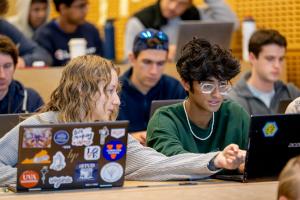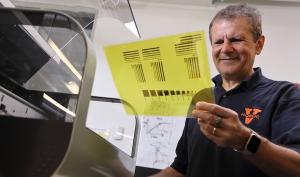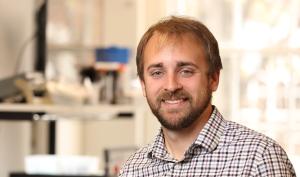
Designing Computers and Electronics
The field of Computer Engineering incorporates both Electrical Engineering (EE) and Computer Science (CS). Computer engineers design, program, produce, operate, and maintain computer and digital systems. The Computer Engineering program gives undergraduate and graduate students a rich learning experience spanning hardware and software in computing systems.
You Will Revolutionize Computing
Our faculty and students build tools that promise to revolutionize computing, such as machine learning, data science and signal processing. They create new hardware platforms to support quantum computing, networked IoT and self-powered computer systems. They also improve real-world applications in robotics; cyber-physical and embedded systems; computer architecture and security; low-power and high-performance circuits and devices; and computer vision, graphics and image analysis.
Research Areas of Focus
Both the Department of Computer Science and the Charles E. Brown Department of Electrical & Computer Engineering welcome Computer Engineering students who combine interest in hardware and software. Students have the freedom to focus on a traditional research area or to work with faculty in both departments to develop a personalized area of research interest. As more faculty research crosses disciplines, students are finding even more opportunities to work with faculty in other departments as well.
Areas of interest include but are not limited to:
- Computer Architecture And High Performance Computing
- Computer Security, Privacy & Cryptography
- Cyber-Physical Systems and Smart Cities
- Data Science, Data Mining And Machine Learning
- Dependable, Resilient And Reconfigurable Computing
- Embedded Systems, Autonomous Systems , and Wireless Sensor Networks
- Human-Machine Learning
- Internet Of Things (IoT) And Physical Systems
- Image Processing
- Mobile, Distributed And Cloud Computing
- Networks And Internet
- Robotics
- Smart And Connected Health Systems
- Smart Energy And Power Management
- VLSI; System-On-Chip; Low-Power Design




